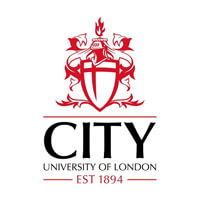fees waived
Engineering with Business, MEng (Hons)
City, University of London, United Kingdom
Subject ranking
UK / Guardian 2025 3rd
UK / ARWU 2024 8th
UK / CUG 2024 15th
Costs
food & rentS$25.1K / year
Entry requirements
Scholarships
Limited quantity
Information
Code
Intakes
Website (External)
Programmes
Information
Duration
2029
This four-year Engineering with Business degree integrates engineering design, systems, and management skills with business acumen in model development and entrepreneurship. Students gain interdisciplinary knowledge through core topics in engineering, design, innovation, strategy, and sustainability, while developing leadership for global businesses. The program includes individual and group projects, strong industry links via guest lectures and collaborations with Bayes Business School, and optional placement opportunities to enhance employability.The curriculum builds a foundation in engineering subjects like mathematics, electronics, and thermodynamics in Year 1, progressing to specializations in project management, finance, innovation, and system integration in later years. Assessment combines coursework, examinations, and project reports, with grades weighted toward final years. Graduates emerge equipped for roles in engineering business, entrepreneurship, or executive positions, supported by City's reputation and potential accreditation for Chartered Engineer status.
You will develop a background in an interdisciplinary range of engineering subjects, as well as a firm understanding of management studies and engineering design. The Engineer in Society is an innovative theme across each year. We introduce you to the economic, social and technical context where engineers work, and develop your social responsibility, knowledge, and topical engineering skills. Year 1 Our mostly shared first year offers a foundation in the principles of engineering in mathematics, engineering physics, electronics and computing, as well as building teamwork and communication skills. -The Engineering in Society - Social responsibility (15 credits) -Engineering Design 1 (15 credits) -Principles of interdisciplinary thinking in engineering and business (15 credits) -Electronics - including circuits, digital and analog electronics (15 credits) -Introductory Mathematics and Programming (15 credits) -Engineering Science (15 credits) -Mathematics 1 (15 credits) -Introduction to Thermodynamics and Fluid Mechanics (15 credits) Year 2 Begin to specialise in key aspects of engineering and business, building on topical areas of engineering, and including project management, finance and accounting, entrepreneurship and innovation management. -The Engineer in Society: Sustainability and Circular Economy (15 credits) -Mathematics 2 (15 credits) -Project Management (15 credits) -Finance and Accounting (15 credits) -Innovation Management (15 credits) -Entrepreneurship (15 credits) -Data Analysis for Engineers (15 credits) -Sensor Systems and Instrumentation (15 credits) Year 3 Deepen your expertise with applied modules in modern engineering business, including system integration, through-life engineering, and strategy in engineering and technology, with case studies across the spectrum of engineering practice. -Individual project (30 credits) -The Engineer in society: Ethical business (15 credits) -Supply Chain Management (15 credits) -Strategy in Engineering and Technology Firms (15 credits) -System Integration (15 credits) -Through Life Engineering (15 credits) -Energy policy, regulations (15 credits) Year 4 Transition to professional practice with a major integrated design project and advanced modules. -Group project (30 credits) -Engineering with Business in Society (15 credits) -Design Thinking (15 credits) -Product Design and Management (15 credits) -Digital Business (15 credits) -The energy market and Energy Trading (15 credits) -Energy Infrastructure and Sustainability (15 credits) -Energy Economics and Finance (15 credits) -Ethics and Biodata Management and Security (15 credits) -Electric and Hybrid Vehicles (15 credits) -Embedded Systems (15 credits) -Machine Learning (15 credits) -Cyber Security Systems (15 credits) -Robotics Imaging and Vision (15 credits) -Asset Management and BIM for Infrastructures (15 credits) -Introduction to Management (15 credits)

